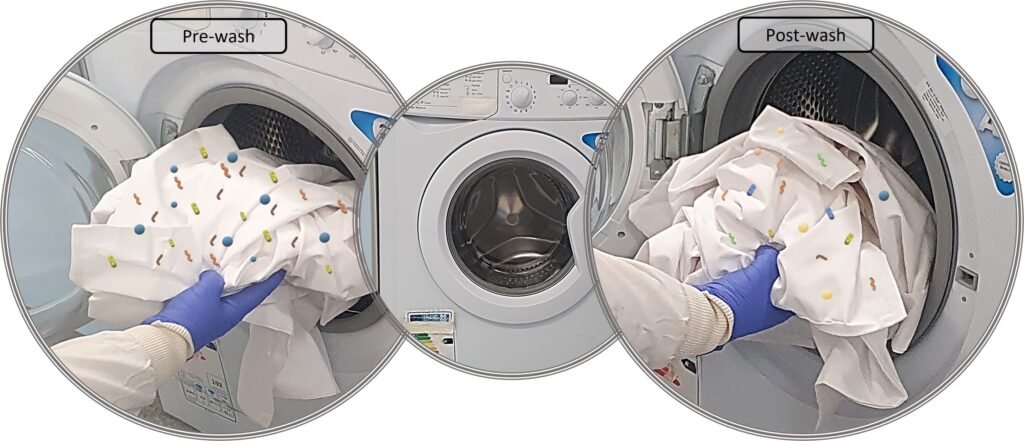Health care workers who launder their uniforms at home may inadvertently be contributing to the spread of antibiotic-resistant infections in hospitals, a recent study led by Katie Laird of De Montfort University has found. Published in PLOS One, the study sheds light on the potential risks associated with washing health care worker uniforms in standard home washing machines.
Hospital-acquired infections, often involving antibiotic-resistant bacteria, pose a significant public health threat. Nurses and health care workers commonly wash their uniforms at home, but research suggests that bacteria can survive on clothing and be transmitted, raising concerns about the effectiveness of home washing machines in preventing the spread of harmful microbes.
In the study, researchers tested six models of home washing machines to assess their ability to decontaminate health care worker uniforms. Fabric swatches contaminated with bacteria were washed in hot water using either a rapid or normal cycle. Shockingly, half of the machines failed to disinfect the clothing during the rapid cycle, while one-third did not adequately clean the garments during the standard cycle.
Additionally, biofilm samples collected from inside 12 washing machines revealed the presence of potentially pathogenic bacteria and antibiotic resistance genes. The study also showed that bacteria can develop resistance to domestic detergents, which in turn increases their resistance to certain antibiotics.
These findings suggest that many home washing machines may not be sufficient for decontaminating health care worker uniforms, potentially contributing to the spread of hospital-acquired infections and antibiotic resistance. The researchers recommend a revision of laundering guidelines for health care workers to ensure that home washing machines are effectively cleaning garments. Alternatively, health care facilities could opt for on-site industrial machines to launder uniforms, enhancing patient safety and controlling the spread of antibiotic-resistant pathogens.
The study authors emphasize the importance of addressing the transmission of infectious diseases through textiles and combating antimicrobial resistance. They stress the need to reconsider the laundering practices of health care workers to protect against the survival of antibiotic-resistant bacteria on clothing.
For more information on this research, readers can refer to the study titled “Domestic laundering of healthcare textiles: Disinfection efficacy and risks of antibiotic resistance transmission” published in PLOS One. The DOI for this study is 10.1371/journal.pone.0321467.
It is evident from this study that domestic washing machines often fail to disinfect textiles, allowing antibiotic-resistant bacteria to persist. To effectively tackle the transmission of infectious diseases and address antimicrobial resistance, it is crucial to rethink the laundering practices of health care workers.
The original article on this topic can be accessed at https://medicalxpress.com/news/2025-04-home-machines-important-pathogens-textiles.html. Please note that the content is subject to copyright, and reproduction without permission is prohibited. This information is provided for educational and informational purposes only.


